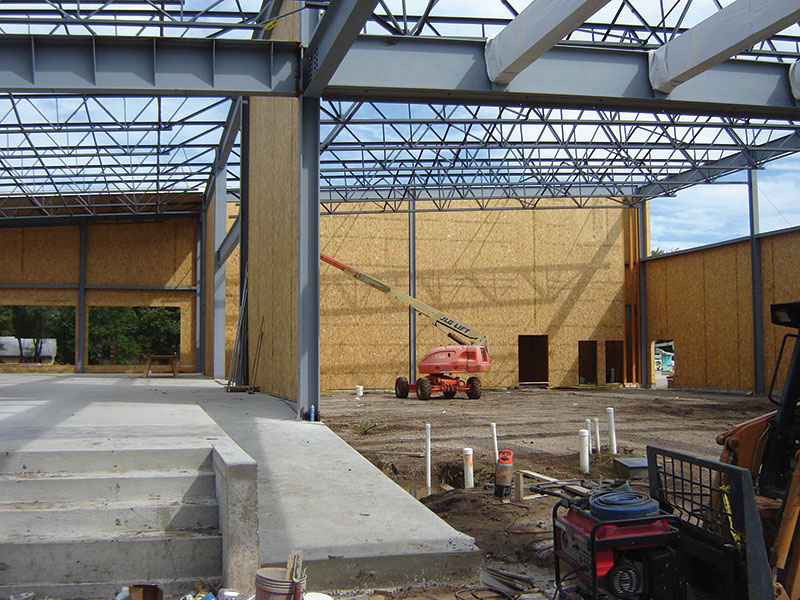
SIP Panel Manufacturers: Efficiency and Sustainability in Construction
December 15, 2023In the modern world of construction, sustainability and efficiency are key. Innovative building materials also play a significant role. SIP (Structural Insulated Panels), among the many advances in construction technology, has emerged as a pioneer in revolutionizing the building process. The use of SIP (Structural Insulated Panels) panels, which have two exterior layers and an insulating core, is growing in popularity because they may be used to construct long-lasting, structurally sound, and energy-efficient buildings. In this piece, we’ll explore the importance of SIP Panel Manufacturers and their contribution to efficiency and sustainable construction.
SIP Panels – Basics
SIP panels have three layers: two outermost layers (typically made out of OSB or oriented board) and an inner core (usually made out of foam insulation). These panels are manufactured to precise specifications in controlled environments. This guarantees high-quality, consistent performance. The result is an environmentally friendly and efficient building material.
Efficiency In Construction
SIP Panels are known to be efficient in the construction industry. SIPs can increase efficiency.
- Quick-Installation: These panels are prefabricated. In addition, they come in standard measurements. This makes it easy to transport and assemble. This allows builders to reduce construction costs by reducing the time it takes to build.
- Less Waste: Manufacturers of SIP panels optimize their material usage, which results in minimal construction waste. This waste reduction is not just environmentally friendly; it is also cost-effective.
- Improved Efficiency: Panels with SIP offer excellent insulation qualities, reducing the use of additional insulation material. SIP panels can make buildings more efficient and save money in the long term.
- Consistent High Quality: All SIP panels manufactured in controlled conditions are of consistently high quality. This consistency helps to minimize construction delays and rework because of variations in the materials.
Building Sustainability
SIP panel manufacturers make significant contributions in this regard.
- Energy efficiency: Thanks to the superior insulation properties of SIP, these panels are highly energy-efficient. SIP panel buildings use less energy for heating and cooling and have a lower overall carbon footprint.
- Resource conservation: Using SIP panels to maximize material usage reduces waste and conserves valuable resources. This sustainability is in alignment with the principles of responsible building.
- Lower CO2 Emissions: SIP panels reduce greenhouse gasses from heating and air conditioning systems. This reduction in emissions contributes to a cleaner, more sustainable world.
- Longevity: Panels made of SIP are durable and offer a greater lifespan than materials used in traditional construction. It is because of this durability that fewer materials are required to replace or repair the panels.
Applications beyond Traditional SIP Panels
SIP panel makers are constantly innovating, and they expand their product line to meet the various needs of construction. SIPs are available in a variety of variations. These include metal insulated and controlled environment panels.
- Metal Insulated Panels: Metal insulated panels combine the efficiency and the insulation properties of the SIP panels and the durability and aesthetics of the metal exteriors. Commercial and industrial applications often use MIPs due to their strength. Metal-insulated wall panels can be used for many structures, including warehouses, agricultural buildings, and more.
- Panels Controlled Environment (CEPs): Panels CEPs provide a controlled environment inside the panel. These panels offer excellent temperature regulation, humidity management, and insulation. Controlled environment panels are used for settings that need precise climate control. Examples include laboratories, cleanrooms, and food processing centers. CEPs are crucial in ensuring these specialized spaces remain intact.